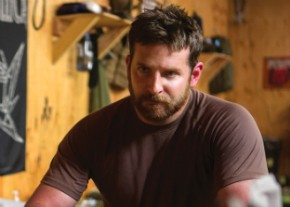Sheepdog or sheep?

In a scene in American Sniper, Chris Kyle (Bradley Cooper) is told by his father (Ben Reed) that there are three kinds of people in the world: There are sheep, helpless and clueless. There are wolves, dangerous and predatory. And there are sheepdogs, who protect the sheep from the wolves. The father’s story serves as a justification for the career of the “most lethal sniper in U.S. military history.”
In the opening scene, an Iraqi child is running toward a unit of American soldiers with a grenade in his hand. Will Kyle kill the child and protect his friends? Director Clint Eastwood cuts away, leaving us in suspense.
The suspense works. This is a riveting film. Every war movie is in essence a pro-war movie, even when it tries to be against war. The depiction of soldiers suffering on behalf of a nation makes us accept subconsciously the rationale: this is a great sacrifice for a great cause. The young men and women going door-to-door looking for bad guys in Fallujah or Sadr City are taking terrible risks on our behalf. It must be justified.




